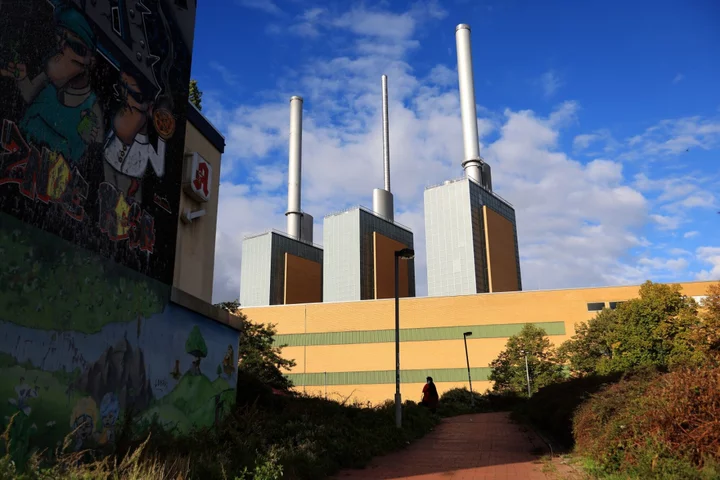
Germany to Test Companies’ Abilities to Cope With Gas Emergency
Germany’s energy regulator will practice a large-scale emergency exercise with companies this September, testing their preparedness should gas
1970-01-01 08:00

Odey’s Only Female Money Manager Posts Gain But It’s Not Enough to Keep Clients
Sophia Whitbread, the only female portfolio manager at what used to be Crispin Odey’s investment empire, has been
1970-01-01 08:00
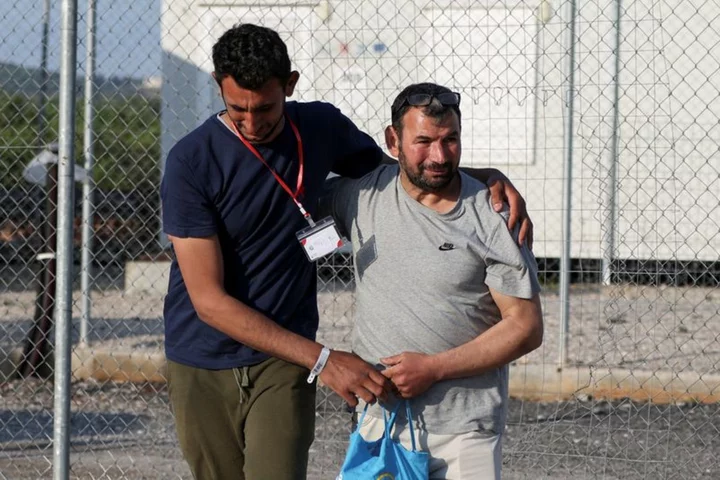
Greek migrant tragedy death toll rises, suspects detained
By Karolina Tagaris MALAKASA, Greece (Reuters) -The suspected smugglers of scores of migrants who drowned in a Mediterranean Sea shipwreck
1970-01-01 08:00

Renault Sees Nissan Executive Exit Speeding Up Alliance Deal
Renault SA executives are optimistic that one of their counterparts leaving Nissan Motor Co. is likely to speed
1970-01-01 08:00
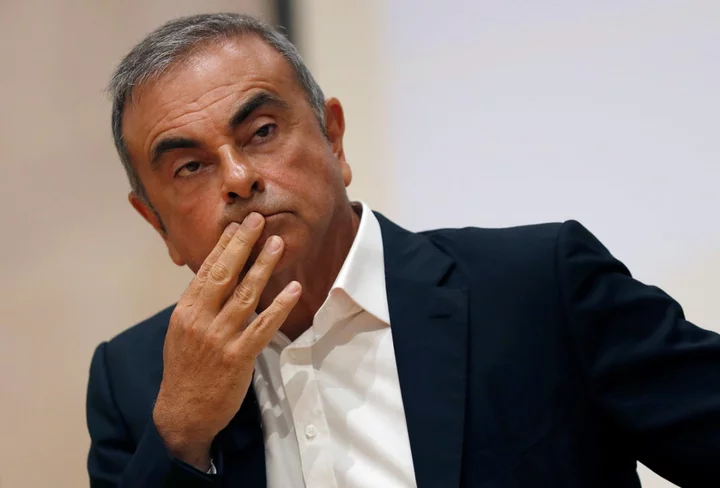
Auto tycoon Ghosn denies payments to former French Cabinet minister
A Lebanese judge on Monday questioned auto tycoon Carlos Ghosn in Beirut over possible links to a former French Cabinet minister charged two years ago with “passive corruption" for work she did for him, officials familiar with the case said. The Lebanese officials said Ghosn denied any dealings with France’s former Justice Minister Rachida Dati who is accused of having done consulting work for Ghosn for two years starting in 2010 when she was a member of the European parliament. Dati was accused in 2021 of “passive corruption by a person who at the time was holding an elective mandate" and “benefiting from abuse of power.” She was suspected of lobbying which would have been illegal in her position. The former head of Nissan and Renault denied during the questioning in Beirut that Nissan had paid about $1 million for Dati in lawyer fees, added the officials speaking on condition of anonymity. The officials said Beirut recently received a new Red Notice from Interpol and summoned Ghosn for questioning on Monday where he came with his lawyer to attend the session. It was the third Red Notice that Lebanon has received since Ghosn fled from Japan in late 2019. A Red Notice is not an international arrest warrant but a request to law enforcement to provisionally arrest the person of interest. Monday’s questioning was the first for Ghosn since May last year when he was summoned for questioning days after Beirut received a Red Notice from Interpol at the request of the French prosecutor’s office. The notice was for Ghosn and four other people based on an investigation opened in 2019 into money laundering and abuse of company assets. Dati was the toast of Paris and foreign capitals when she served as justice minister under then-President Nicolas Sarkozy from June 2007 to June 2009. With her Algerian and Moroccan parents and humble origins as one of 11 children in a housing project, she was his emblem of diversity in a new France. Her bling-bling style — a penchant for Dior clothes, stiletto heels and expensive jewels — quickly transformed her into Cabinet cover girl. In 2019, Ghosn jumped bail while being questioned in Japan in a daring escape by hiding in a box spirited aboard a private jet. He fled to Lebanon which does not extradite its citizens. Prosecutors in Japan charged three Americans with helping Ghosn escape the country. Renault and Nissan have been distancing themselves from the scandal. Ghosn, who has citizenship in Lebanon, France and Brazil, has repeatedly professed his innocence. Read More Ukraine war’s heaviest fight rages in east - follow live Charity boss speaks out over ‘traumatic’ encounter with royal aide Egyptian family awaits word on son as village mourns dozens feared drowned trying to reach Europe Tunisia says attacker fatally stabbed police officer at Brazilian Embassy; suspect arrested Greek court postpones hearing for smuggling suspects in deadly migrant boat sinking until Tuesday
1970-01-01 08:00
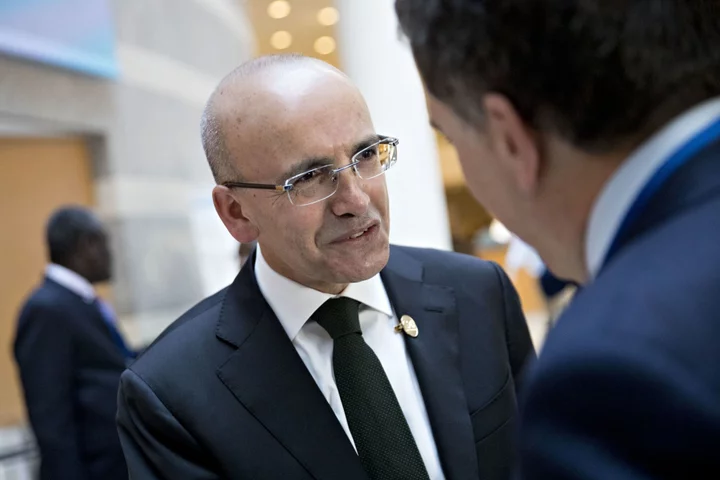
Turkey’s Simsek Signals Gradual Shift to Conventional Policy
Turkey’s Treasury and Finance Minister Mehmet Simsek has indicated he will take gradual steps in steering toward more
1970-01-01 08:00

Heat, drought and fire: Europe's year of extremes in 2022 will not be a 'one-off,' new report finds
Last summer was the hottest on record for Europe and caused more than 16,000 excess deaths, according to the report.
1970-01-01 08:00
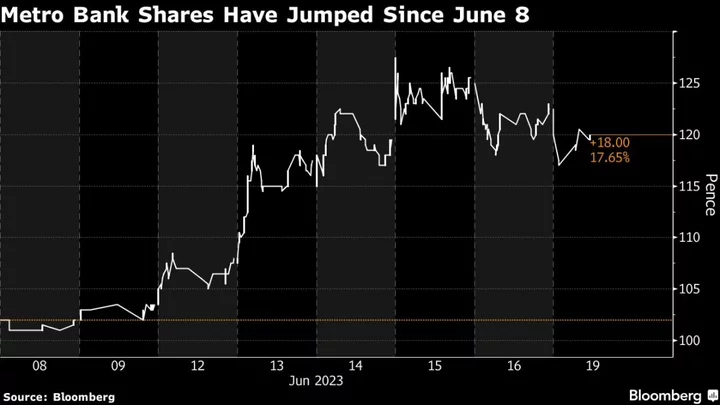
Odey’s Shorts on UK Stocks All But Vanished From Watchdog List
A reduced short bet on Metro Bank Holdings Plc is all that remains of the bearish wagers by
1970-01-01 08:00
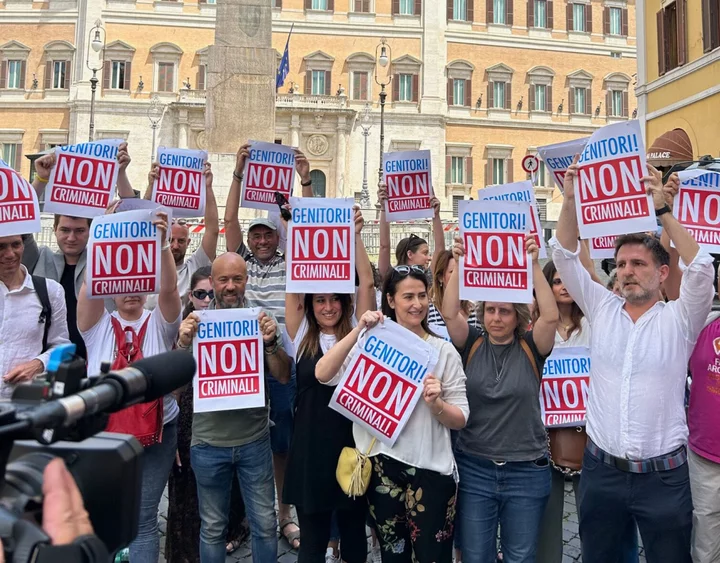
Italy Wants to Punish Surrogacy With Jail Even If Done Legally
Italian lawmakers on Monday began debating a divisive proposal to criminalize surrogacies arranged abroad as Prime Minister Giorgia
1970-01-01 08:00
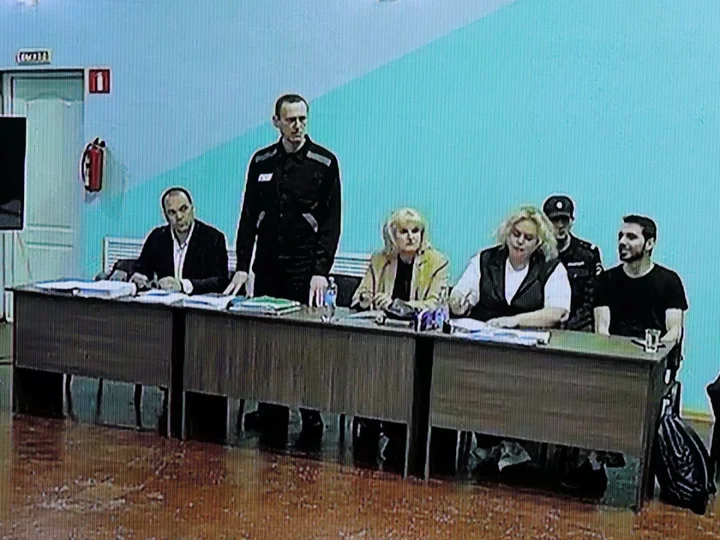
Jailed Putin critic Navalny back in court for another trial – one that could keep him in prison for decades
He is the man who who has been leading opposition to Russia’s Presdent Vladimir Putin for a decade – organising mass protests and seeking to expose corruption by officials. Alexei Navalny, 47, is now the country’s most prominent prisoner. He is currently serving sentences totalling more than nine years, having been arrested in January 2021 upon his return to Moscow after recuperating in Germany from nerve agent poisoning that he blamed on the Kremlin. On Monday, he was in court facing the start of his latest trial on charges of extremism. Charges that could keep him behind bars for decades. Mr Navalny, wearing his prison garb, looked gaunt at the session but spoke emphatically about the weakness of the state's case and gestured energetically. Mr Navalny has said the new extremism charges, which he rejected as "absurd," could keep him in prison for another 30 years. He said an investigator told him that he would also face a separate military trial on terrorism charges that could potentially carry a life sentence. The trial came amid a sweeping Russian crackdown on dissent amid the fighting in Ukraine, which Mr Navalny has harshly criticised. Mr Nalvalny's supporters accuse Russian authorities of trying to break him in prison, to silence his criticism of President Putin, something the Kremlin denies. Much of the international community has hit out at Mr Navalny's imprisonment as politically motivated. The Moscow City Court, which opened the hearing at high-security Penal Colony No. 6, didn't allow reporters in the courtroom and they watched the proceedings via video feed from a separate building. Mr Navalny's parents also were denied access to the court and followed the hearing remotely. Mr Navalny and his lawyers urged the judge to hold an open trial, arguing that authorities are eager to suppress details of the proceedings to cover up the weakness of the case. "The investigators, the prosecutors and the authorities in general don't want the public to know about the trial," Navalny said. Prosecutor Nadezhda Tikhonova asked the judge to conduct the trial behind closed doors, citing security concerns. The feed from the session to media room was then cut, but it wasn't immediately clear if it was because the judge decided to close the trial or if it was for another reason. The new charges relate to the activities of Mr Navalny's anti-corruption foundation and statements by his top associates. His allies said the charges retroactively criminalise all the activities of Mr Navalny's foundation since its creation in 2011. One of Mr Navalny's associates, Daniel Kholodny, was relocated from a different prison to face trial alongside him. Mr Navalny has spent months in a tiny one-person cell, also called a "punishment cell," for purported disciplinary violations such as an alleged failure to properly button his prison clothes, properly introduce himself to a guard or to wash his face at a specified time. Mr Navalny's associates and supporters have accused prison authorities of failing to provide him with proper medical assistance and voiced concern about his health. As Mr Navalny's trial opened, the Prosecutor General's office declared the Bulgaria-based Agora human rights group to be an "undesirable" organisation. It said the group poses a "threat to the constitutional order and national security" by alleging human rights violations and offering legal assistance to members of the opposition movement. Russian authorities have banned dozens of domestic and foreign nongovernmental organizations on similar grounds. In Berlin, the German government criticised the trial of Mr Navalny and reiterated its call for his immediate release. "In case of of the opposition politician Alexei Navalny, the Russian authorities keep looking for new excuses to extend his imprisonment," government spokesman Wolfgang Buechner said at a briefing. "The German government continues to demand of the Russian authorities that they release Navalny without delay," he added. "Navalny's imprisonment is based on a politically motivated verdict, as the European Court of Human Rights concluded back in 2017." Asked whether Germany could provide any assistance to Navalny or observe the trial, Foreign Ministry spokesman Christian Wagner said German officials were doing what they could "on the few channels that we have," but acknowledged it was "very difficult at the moment" given the current state of relations with Russia. It was not immediately clear which specific actions or incidents the new charges referred to. One relates to "rehabilitation of Nazism" - a possible reference to Navalny's declarations of support for Ukraine, whose government Russia accuses of embodying Nazi ideology. A notion dismissed as ridiculous by Ukraine and its Western allies. In April, Russian investigators formally linked Navalny supporters to the murder of Vladlen Tatarsky, a popular military blogger and supporter of Russia's military campaign in Ukraine who was killed by a bomb in St Petersburg. Russia's National Anti-terrorism Committee (NAC) claimed Ukrainian intelligence had organised the bombing with help from Mr Navalny's supporters. This appeared to be a reference to the fact that a suspect arrested over the killing once registered to take part in an anti-Kremlin voting scheme promoted by Mr Navalny's movement. Mr Navalny allies denied any connection to the killing. Ukraine attributed it to "domestic terrorism". Associated Press Read More The Body in the Woods | An Independent TV Original Documentary The harrowing discovery at centre of The Independent’s new documentary Russian court starts trial of opposition leader Navalny that could keep him locked up for decades Navalny associate jailed by Russian court: ‘Another hostage in prison’ Russian court sends an associate of Kremlin foe Navalny to prison for 7 1/2 years
1970-01-01 08:00
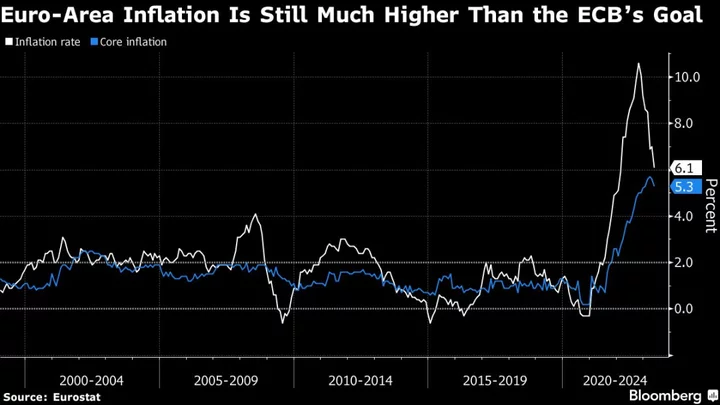
ECB Officials Spar as Lane Rebuffs Talk of September Rate Hike
European Central Bank officials revealed a sharpening divide on the outlook for interest-rate hikes, with some favoring caution
1970-01-01 08:00
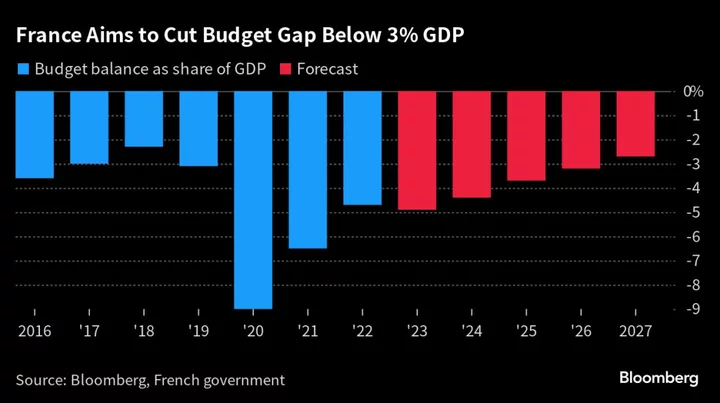
French Government Aims to Save $11 Billion to Cut Budget Gap
The French government said it has identified at least €10 billion ($10.9 billion) of savings as part of
1970-01-01 08:00
